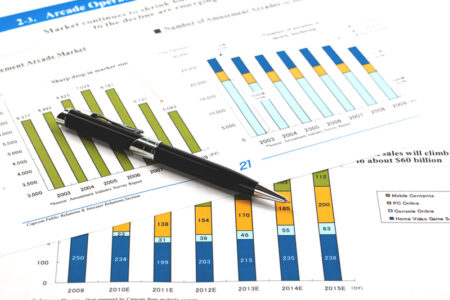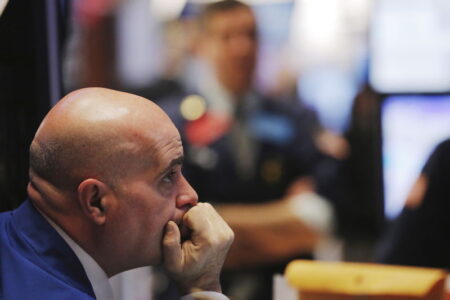By Rajesh Kumar Singh
CHICAGO (Reuters) – Southwest Airlines (NYSE:), the pioneering low-cost carrier, is facing a campaign by an activist investor to overhaul a business model it says is outdated, putting pressure on CEO Robert Jordan and leaving the airline scrambling to modernize, analysts say.
This comes ahead of an investor day on Thursday, where Jordan is expected to outline a plan to restore the carrier’s long-term profitability – a standard investors came to expect from the airline before the pandemic.
The proposed changes include plans to switch to assigned seating and extra-legroom seating – higher-margin offerings that competitors like Delta and United Airlines embraced years ago.
Ahead of the investor meeting, its chief operating officer, Andrew Watterson, told staff in a video message that the airline needed to change its network to account for shifts in business travel patterns after the pandemic.
While that would entail bigger changes for some cities, the airline has no plans to stop serving them, Watterson said, according to a transcript of the video reviewed by Reuters.
“It’s a delicate balancing act, and it requires difficult decisions,” he said, without sharing more details.
Analysts and investors, including hedge fund Elliott Investment Management, have expressed concern that the airline is rigidly committed to a playbook developed decades ago and that some of the proposed changes may be too little, too late. Elliott has launched a campaign to oust Jordan and other top executives.
The hedge fund said on Tuesday it plans to request a special meeting of Southwest’s shareholders as soon as next week to overhaul leadership. In response, the airline ruled out any leadership change and said it was carrying out a “significant transformation” of its business that would improve its financial results.
Southwest, which once boasted a record 47 consecutive years of profit prior to the pandemic, is currently struggling to regain sustained profitability. Interviews with analysts, investors, and workers suggest that the airline’s long-running success may have led to overconfidence and stubbornness among its leaders.
“They have been far too ingrown and … far too smitten with ‘we’ve got to do it the Southwest way,'” said Rob Britton, a professor at Georgetown University.
In response to the criticisms, a Southwest spokesperson said the company typically does not make a decision unless there is data to support it.
“Throughout its history, Southwest has been very deliberate in decision making when it comes to the markets it serves and its business model,” the spokesperson said.
PREMIUM TRAVEL
In an example of strategic missteps, Southwest decided to expand into 18 new markets during the pandemic – a strategy that had previously helped the airline gain market share during downturns. However, government-funded pandemic aid changed the operating landscape, and Southwest’s continued expansion hurt its margins.
Analysts have also criticized Southwest’s slow response to growing demand by travelers for premium travel, which tends to be a source of high-margin revenue for airlines. The company initially dismissed this trend as “highly cyclical” in January but reversed its stance six months later by unveiling plans to attract premium travelers with assigned and extra-legroom seats.
“Southwest is an example of complacency at work and all the risks that brings to business,” said Henry Harteveldt, founder of travel consultancy Atmosphere Research Group.
The airline has also been criticized for its slow adoption of new technologies. For example, Southwest implemented the SkyPath software only this year, an application that uses iPad sensors and GPS data to help navigate turbulence. The software has been used by United and American Airlines (NASDAQ:) pilots for years.
Southwest said the application’s rollout required finding a way to integrate it into its system and making sure its pilots had the necessary support and training.
On a podcast last month, Jordan said the airline has invested in technology like “crazy.” He credited those investments for Southwest’s relatively smooth operations in July when a global cyber outage grounded flights worldwide.
INTERNATIONAL MARKETS
Southwest’s ruthless focus on costs underpinned its success before the pandemic. But operating expenses have surged, with the company spending 99% of its revenue on operating costs last year, up from about 80% in 2015.
Furthermore, Southwest’s reliance on Boeing (NYSE:) has proven costly, as the planemaker’s production and regulatory challenges have forced the airline to operate aircraft it did not plan to fly.
Brett Snyder, an airline analyst, suggests that Southwest’s problems stem from a failure to plan for the future when its business was still humming.
Some say the lack of foresight has left the airline without more diversified revenue streams and vulnerable to softening domestic fares. Unlike peers such as European carrier Ryanair, Southwest’s flights were not available for booking on third-party platforms until recently. It still sells tickets only in U.S. dollar, inhibiting its ability to serve customers overseas.
Southwest’s challenges highlight the need for the airline to identify and capitalize on new growth opportunities beyond its existing fleet and network, Snyder added.
“The airline was going to run out of traditional growth opportunities with its existing fleet and network,” he said.
“One of the failings was to really look more forward as opposed to living in the present.”
Read the full article here
















